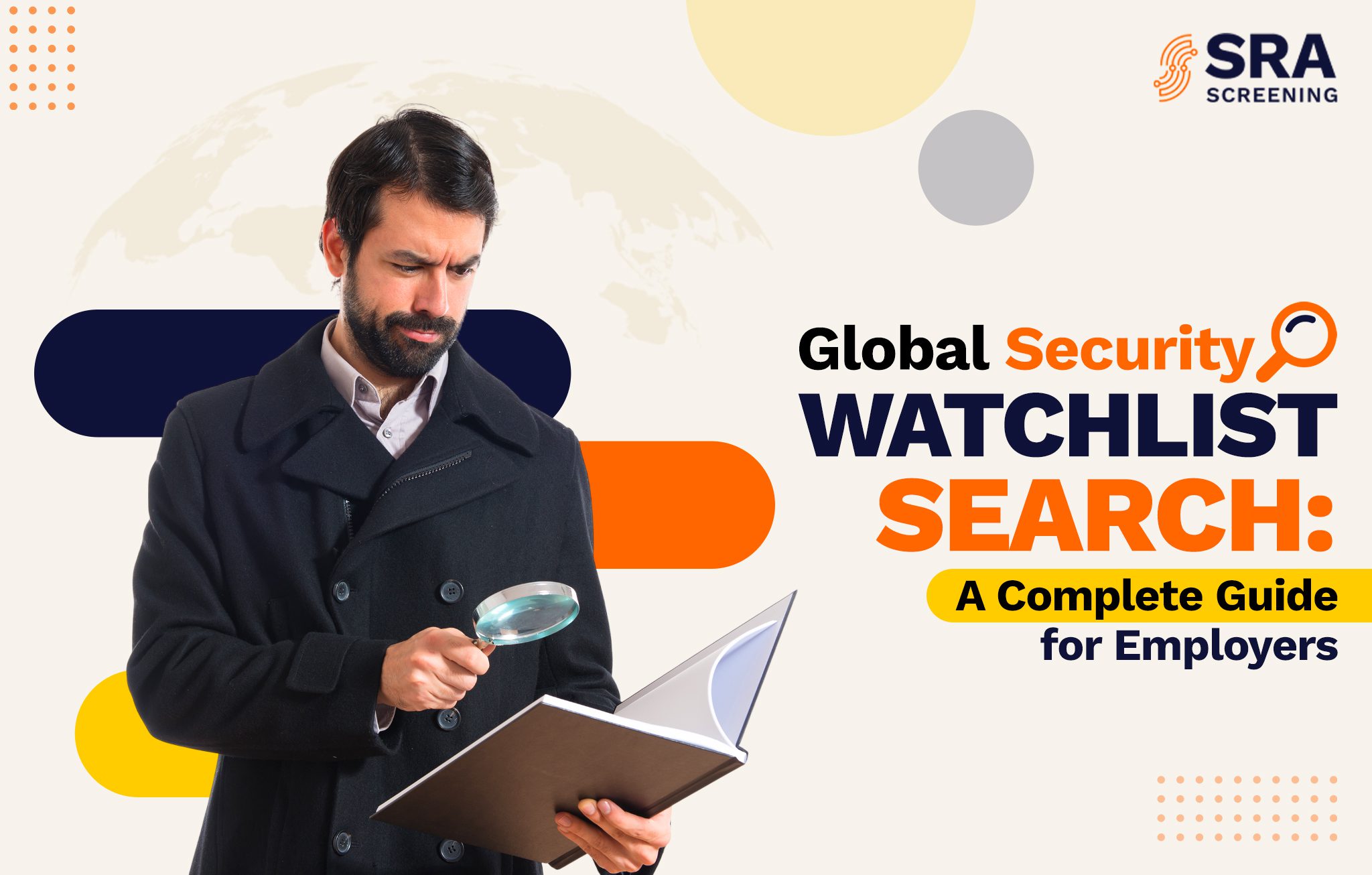
Building a trusted workforce requires more than reviewing credentials or conducting interviews. Employers must also take proactive steps to safeguard their organization from legal, financial, and reputational risks. That’s where a Global Security Watchlist Search becomes an essential part of a thorough screening process.
A global security watchlist search screens individuals or organizations against a wide range of international and domestic databases, government sanctions lists, and regulatory watchlists. The goal is to uncover any involvement in serious offenses such as major fraud, financial crimes, terrorism, or other international violations that could put a business at risk.
Beyond criminal or security concerns, these searches can also highlight regulatory exclusions, sanctions, debarments, malpractice findings, and other disciplinary actions globally. This helps identify individuals who are prohibited or restricted from working in regulated sectors, such as finance, healthcare, or government-related industries.
This screening acts as an added layer of protection. It complements, but does not replace, traditional background checks like criminal history or identity verification.
In today’s highly connected world, organizations face growing pressure to manage compliance, safeguard their reputation, and maintain workforce integrity. A Global Security Watchlist Search supports these goals by providing visibility into international risks that standard background checks may not capture.
Why a Global Security Watchlist Search Matters:
Global Security Watchlist Searches are especially valuable for roles involving financial responsibility, international operations, or public trust, such as finance, executive, and government contracting positions.
A global security watchlist search scans multiple international and domestic sources, such as:
These databases identify individuals or entities subject to trade restrictions, asset freezes, or other government-imposed measures. Common sources include:
U.S. Department of the Treasury sanctions (e.g., SDN and Non-SDN lists)
These lists include publicly available law enforcement and security alerts that may indicate criminal or security-related concerns, such as:
These searches identify individuals who may pose elevated reputational or compliance risk due to public roles or negative media exposure:
Global Security Watchlist Searches obtained through third-party background screening companies are considered consumer reports under the Fair Credit Reporting Act. Employers must provide a clear, standalone disclosure, obtain written authorization, ensure a permissible purpose, and follow the two-step adverse action process (pre-adverse notice with report and rights summary, followed by an adverse notice if the decision is finalized). Reasonable procedures for accuracy and dispute handling should also be maintained.
The Patriot Act promotes safeguards against terrorism financing and money laundering. Employers in regulated industries such as finance, defense, and international trade may be required or strongly encouraged to screen candidates and partners against government watchlists to ensure compliance and mitigate national security risks.
Many states and municipalities have additional background screening requirements that may vary by location. Employers should consult local counsel to confirm any applicable state or local obligations before implementing or updating their watchlist screening practices.
Maintaining compliance in today’s hiring landscape can be challenging, especially as regulations tighten and candidate backgrounds become more complex. A Global Security Watchlist Search gives employers the clarity they need to move forward with confidence, helping you spot potential risks before they become real problems and ensuring your team is built on trust and transparency.
At SRA Screening, we simplify that process. Our Global Security Watchlist Search draws on verified data and expert review to deliver dependable, easy-to-understand results. We help you hire confidently, stay compliant, and protect what matters most: your people and your reputation.
Contact us today to learn how SRA Screening can help you strengthen your compliance strategy and make safer, smarter hiring decisions.
Global Security Watchlist Searches are recommended for applicants involved in sensitive, high-trust, or regulated roles. This includes positions in finance, government contracting, healthcare, and executive leadership. Essentially, any role involving financial responsibility, access to sensitive data, or global operations benefits from this type of screening.
Yes. Under the Fair Credit Reporting Act (FCRA), employers must obtain clear, written consent from the candidate before initiating a Global Security Watchlist Search. If the search results influence an employment decision, the employer must also provide the individual with a copy of the report and an explanation of their rights before taking any adverse action. This ensures fairness, transparency, and compliance throughout the hiring process.
No. A Global Security Watchlist Search is designed to complement, not replace, traditional background checks such as employment and education verification, criminal history searches, and identity validation. When used together, these screenings offer a more comprehensive understanding of a candidate’s background, integrity, and potential risk, helping employers make informed, confident hiring decisions.
DISCLAIMER: This blog post is for informational purposes only and is not legal advice. Please consult a qualified professional before making any decisions.
The FCRA is enforced federally, but states may also implement it and have their own consumer reporting laws. You may have additional rights under state law. For more information, contact your state or local consumer protection agency or your state attorney general.
For many employers, ensuring that new hires can meet the physical demands
As an educational employer, every hiring decision you make either reinforces or
In industries like transportation, logistics, and delivery, background checks and Motor Vehicle
Get updates, exclusive offers, and insights straight to your inbox.
Key Resource Hub
Your Questions Answered
Editorial team insights